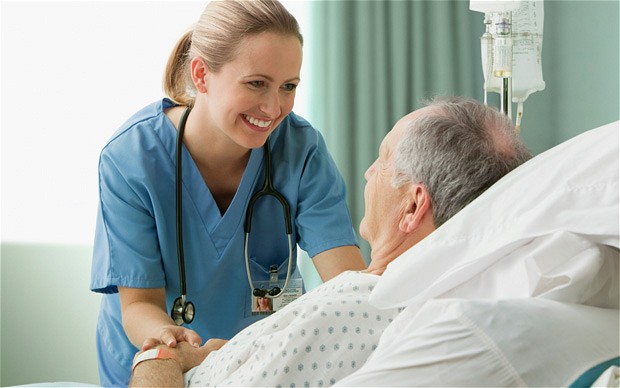Many medical professionals require specific medical supplies, equipment and tools to do their job properly. One such position is nursing. Nursing requires specific medical equipment.
Nurse practitioners are required to assess their patient’s conditions and issues to help physicians offer the best fitting treatments. Nurses must stay organized and be comfortable and skilled with their tools to be able to proficiently examine and test patients. Students and professionals should have the right equipment for the job.
Those looking into nurse practitioner positions should consider the essential items and tools for their success on the job. Your professionalism reflects how well you know your equipment and the type of tools you use to get the job done. Here is a list of the most important medical equipment every nurse and nurse practitioner should have in their bag.
1. Premium Stethoscope
We have all seen a stethoscope and may have even played with one. These are essential to a nurse’s day-to-day life at work. Stethoscopes are important for testing and observing the heart rate of many patients. This type of equipment is used by many medical professionals as well. It can help all types of doctors and nurses if used properly. You must prepare your stethoscope before every use and practice proper sterilization and disinfection methods.
These are important tools for professionals, since they gather information to build a good treatment plan. High-quality stethoscopes amplify specific frequencies of sound within the body from the heart and lungs to help professional get an idea about a patient’s internal health. These can detect conditions like:
● Irregular rhythm
● Heart murmurs
● Signs of congestive heart failure
● Valve leaks
● Aortic stenosis
● And more
2. Professional Sphygmomanometer
As a medical professional you must be prepared to monitor a patients blood pressure and heart rate. A professional sphygmomanometer is essential to assess a patient’s heart health and check if there are any underlying health conditions. Some types of sphygmomanometers have the ability to calculate the heart rate and blood pressure of all types of patients; both adults and children.
Standard forms of this device will suffice for most medical professionals, though some specialties may call for more advanced devices with more capabilities and features. An alternative to the sphygmomanometer is a blood pressure monitor that measures blood levels in a more simple manner.
3. Medical Bag
Medical bags are great for nurses to keep all of their tools and equipment in a central place. Having a medical bag will allow you to stay organized while knowing where your tools are at all times. It can also increase your peace of mind because you will have access to all of the necessary equipment to do your job properly. These can come in backpacks or tote bags.
4. Smartphone or Smart Device
Having a smart device on hand is beneficial to medical professionals. This is because these devices help professionals stay organized, get the information needed, have easy communication with colleagues and authorities, manage schedules and track assignments and reminders. Sometimes it is beneficial to have access to the internet to be able to research to help diagnose a patient’s condition. Smartphones may seem like they would be a distraction for medical professionals but they are greatly beneficial to maintaining their busy work lives.
5. Watch
Being able to keep and watch time is crucial for medical professionals, especially nurses. Because nurses and nurse practitioners are responsible for assessing a patients health first hand, they must be able to keep time for blood pressure readings, vitals, and recording information. Utilitarian watches are important for keeping time on a patient’s condition and issues involved.
6. Medical Pen Light
Pens are important for nurses as they are required to record information, but penlights are just as important. These are often used to check a patients pupil dilation and examine the mouth and throat easily. It can be difficult to see when it comes to assessing and recording a patient’s vital signs. Medical light pens are beneficial to medical professions who need to get a better understanding of a patient’s health cognitive and physical.
7. Nursing Clipboard and Pen
We all know nurses are responsible for taking down the patient’s information and we all know that nurses use clipboards to help with organization. Clipboards are also used to make it easier for nurses and medical professionals to write while standing up. These are important for the privacy of patient information as well.
A pen is also necessary. Clickable or retractable ones are preferred as they are suitable for frequent use. When you are using pens with caps it can take extra work to have to keep removing and placing the cap back on. It can also increase the amount of work required to keep up with the caps. Retractable pens are ideal for medical professionals like nurse practitioners to be constantly on the go.
8. Trauma Shears
Scissors may seem like they don’t necessarily belong in the equipment of a nurse practitioner, but they are beneficial when it comes to dressing a wound or trauma bandage. These dressings have to be removed safely and nurses utilize trauma shears to cut the bandages off. They are also used for easily removing clothing.
9. Pulse Oximeter
If you have been in the hospital you may have seen a pulse oximeter. This device helps nurses monitor oxygen saturation and the pulse of a patient through the fingertip. They are small devices that are critical to the daily lives of a nurse. This piece of equipment is ideal for nurses because of its portability, as it allows them to be able to get medical information from their partner at any moment.
10. Thermometer
Nurses should always have a thermometer on hand to monitor a patient’s body temperature. This device is usually used to check basic vitals but can often be what prompts nurses to search for underlying issues. Digital thermometers are necessities for medical professionals, especially nurses.


